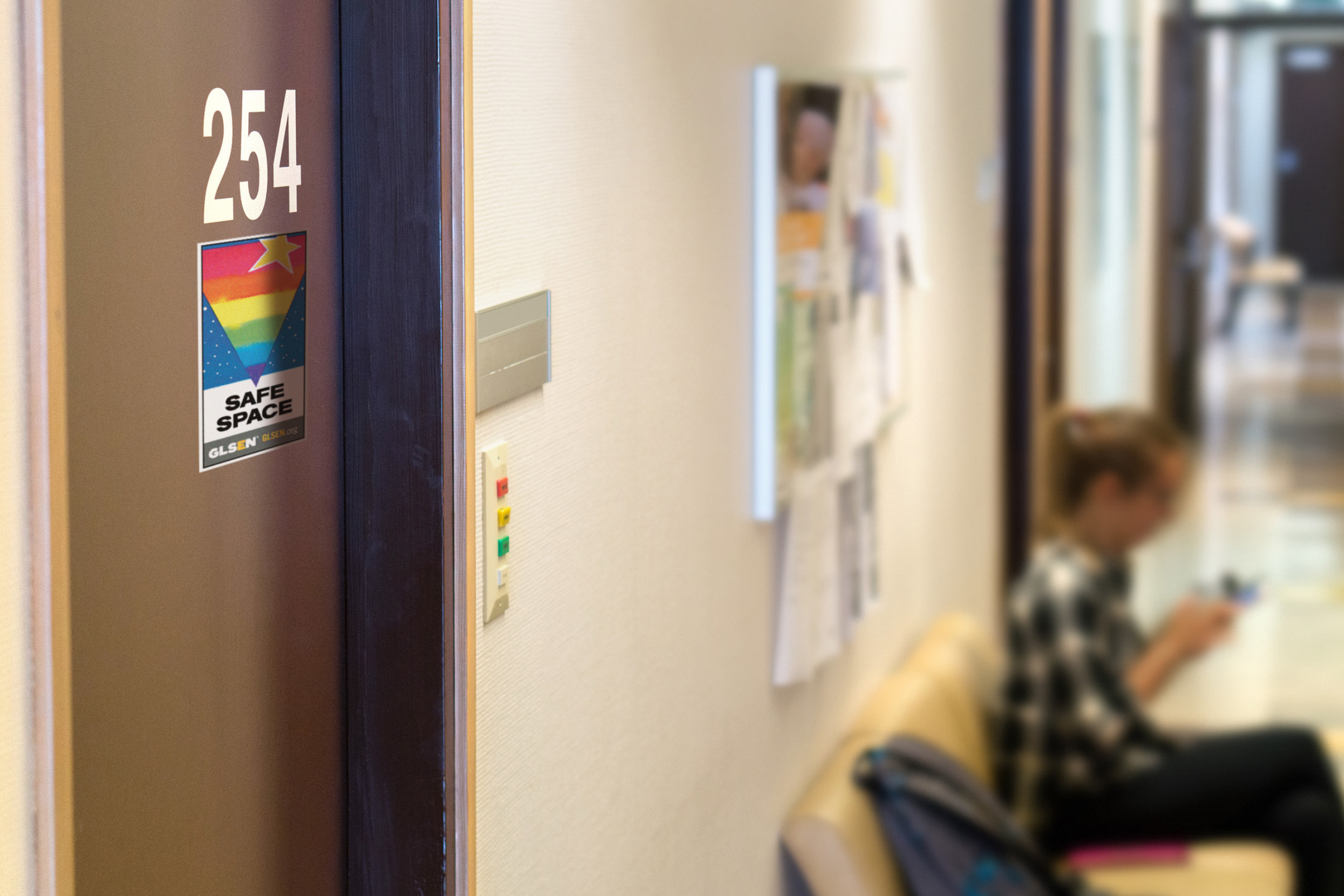This piece is co-authored by Ashley DeGarmo and Moses Gur.
In honor of Pride Month, Third Horizon Strategies (THS) recently interviewed Chicago-based Psychotherapist Spencer Rogers, LSW, to learn about their experiences as a front-line clinician at Howard Brown Health – one of the nation’s largest lesbian, gay, bisexual, transgender, and queer (LGBTQ+) health care organizations.
According to The Trevor Project 2022 National Survey on LGBTQ Youth Mental Health, 60 percent of LGBTQ+ youth who wanted mental health care could not get it, and 45 percent of LGBTQ+ youth experienced suicidal thoughts. In 2023, Mental Health America reported that 39 percent (5.8 million) of people who identified as lesbian, gay, or bisexual reported having a mental illness over the past year.
Howard Brown Health clinics are located across Chicagoland and serve over 40,000 adults and youth across primary medical care, behavioral health, HIV/Sexually Transmitted Infection (STI) prevention, youth services, and elder services. Spencer is an early career therapist who chose to relocate to Chicago and work at Howard Brown Health to provide behavioral health care specifically to the LGBTQ population.
Ashley DeGarmo and Moses Gur (THS): What are the most significant barriers to behavioral health care delivery for the LGBTQ+ population?
Spencer Rogers (SR): Multiple critical issues impact individuals’ access to high-quality behavioral health care. First and foremost is access to care and issues posed when lacking comprehensive insurance. Many patients, even with insurance, are underinsured. Challenges include limitations to clinical therapeutic services, a set number of covered visits, and minimal education efforts for beneficiaries to understand their coverage options. For instance, I know folks that don’t realize that their state Medicaid plan covers behavioral health services such as therapy. Even with insurance, individuals cite deductibles and copays as barriers to accessing behavioral health care.
There is also a shortage of behavioral health clinical resources, particularly focusing on the needs of the LGBTQ+ population. There is a meaningful utility for patients to engage with a clinician who holds a shared identity. It is feasible to assume individuals have not sought out care if there is not an LGBTQ+ identifying or informed clinician in their health insurance network. Additionally, there are opportunities for clinicians who do not identify as LGBTQ+ to cultivate skills that will help them be well-informed to meet the needs of patients and not cause harm or further trauma.
THS: What are the limitations in growing the behavioral health workforce specializing in LGBTQ+ populations?
SR: There is a very high need for therapists, and the infrastructure is not built to support this demand. Compensation is a big factor. The current reimbursement rates and salaries are insufficient to support someone’s livelihood. Pay is a large deterrent to why individuals may not choose this career path.
Another limitation is emotional labor. It is difficult to support people through some of their most difficult life events. To avoid burnout, therapists must have strong self-awareness, supportive resources, and coping techniques for their well-being. I feel a push and pull to meet my own needs while also wanting to be available to patients.
THS: What methods of self-care do you employ to support your well-being?
SR: Focusing on my well-being and burnout prevention played a key role as I sought job opportunities after completing my degree program. For instance, I looked at clinics with manageable caseloads and supportive supervision practices. I can identify my boundaries not just in the number of patients I support but the types of conditions I support. At Howard Brown, I can have open, pivotal conversations about what taking care of the therapist looks like and identify my boundaries and limitations. This flexibility not only supports my well-being but makes me a better clinician to serve my patients.
THS: What opportunities do you see to increase the behavioral health workforce or help clinicians gain the cultural competencies to serve individuals identifying as LGBTQ+?
SR: There is a large opportunity to increase workforce capacity through an intentional educational curriculum. For instance, rather than silo a concentration of focus in LGBTQ+ care, include education on serving all types of populations in the mainstream coursework required. Additionally, clinicians can seek out coursework that focuses on LGBTQ+ or other populations when completing continuing education credits or seminars as an intentional way to continue to grow their skill set and competencies to support the unique needs posed.
Furthermore, many practices may tout multiple specialties of clinical offerings and populations they work with; however, it is not evident that these claims are backed up. For instance, if a practice’s website does not include preferred pronouns or identify the specific programs they’ve trained with, there is diminished credibility in the cultural competency offered.
THS: What are the most pressing national or local policy issues that have the greatest impact in access to behavioral health care for the LGBTQ+ community?
SR: The increase in transphobic, queerphobic, and homophobic legislation introduced and passed across the country poses a grave threat to the LGBTQ+ population and particularly in the ability to access LGBTQ+ affirming comprehensive physical and behavioral health care services. These legislative actions pose a barrier to individuals seeking behavioral health care and feeling safe expressing their true selves if they fear discrimination or legal recourse from the health care system. In many states, parents may now reasonably fear reports of child abuse if seeking gender-affirming care for their children.
We are seeing political refugees seeking care outside their state when accessible. This is a position of privilege that not everyone has access to. Limiting access to LGBTQ+ affirming care in some states will only widen the existing health inequities within our country today to the detriment of individuals who already face marginalization.
THS: If there is one policy change you could make today to impact the accessibility of behavioral health care, what would it be?
SR: The barriers presented by lack of insurance coverage or underinsurance. Removing the cost barriers, service constraints, and limited networks imposed by payers would immensely help individuals receive the care most needed.
THS is immensely grateful for Spencer’s time and openness during the interview. Their perspective as a clinician is incredibly valuable as strategic workforce policy and care delivery choices are made at a national and local level. THS is committed to raising the voices of individuals doing meaningful front-line behavioral health work as we support strategic and system-level planning.

